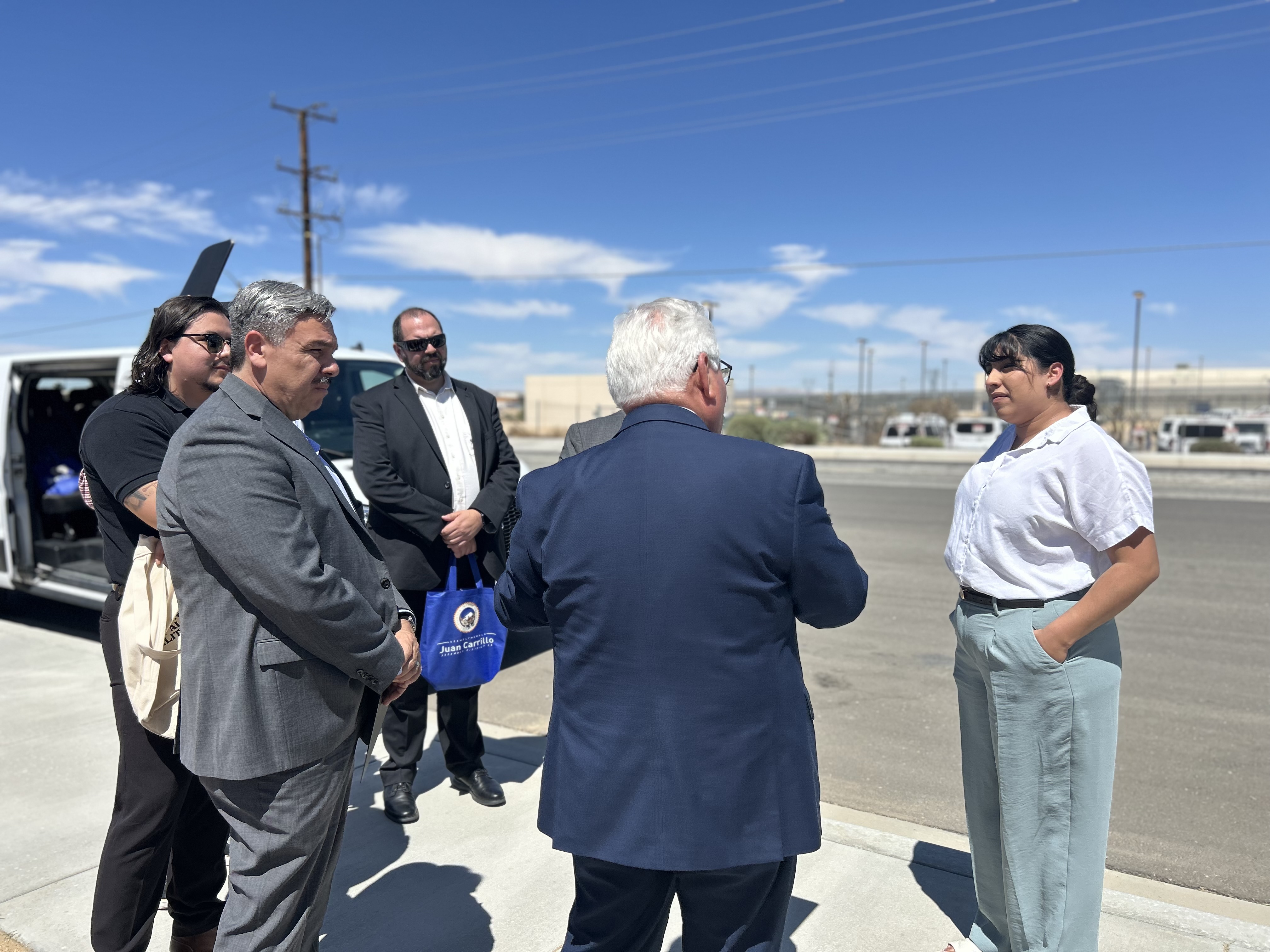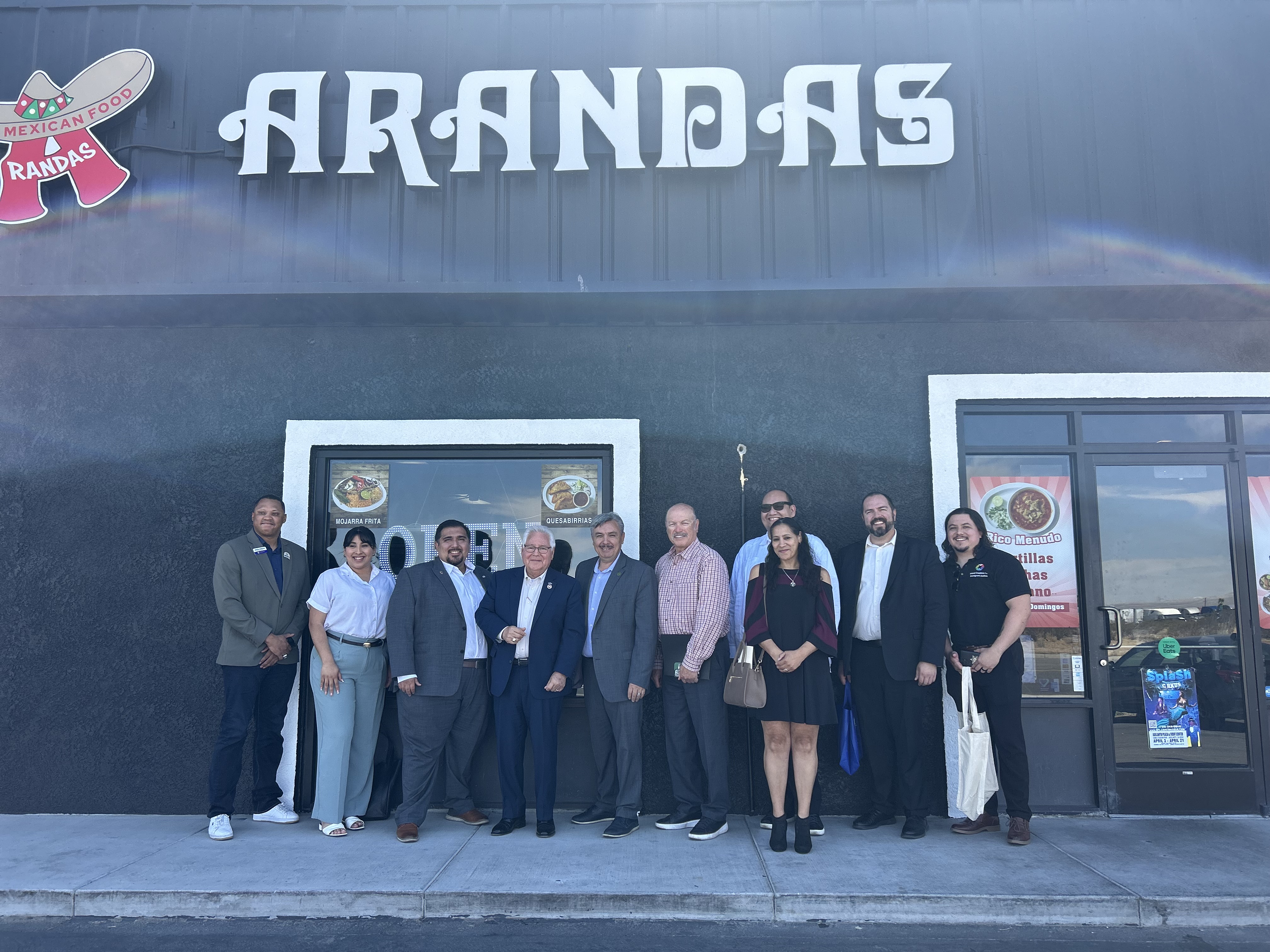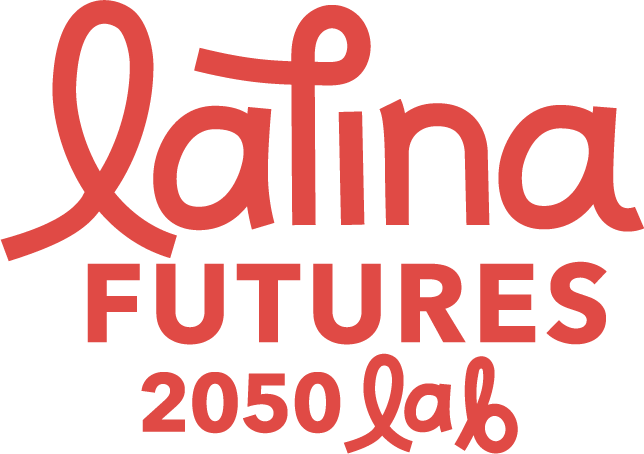The tour was organized by Assemblymember Juan Carrillo (D-District 39), California Latino Legislative Caucus’s vice chair for Southern California.
By Sandra Baltazar Martínez
A two-day tour across the high desert gave city and state leaders first-hand access to community members who expressed their priorities around economic development, workforce challenges, immigration policies and infrastructure needs.
The tour, led by Assembly member Juan Carrillo (District 39), vice chair of the California Latino Legislative Caucus (CLLC), was designed to understand the diverse needs of residents in Antelope Valley, High Desert, and Victor Valley, and to work towards legislative solutions that address them. Sonja Diaz, Latina Futures 2050 Lab cofounder, was invited by Carrillo to participate in the tour as a community leader and explore future opportunities to advance the CLLC’s mission.

On Friday, April 11, day two of the tour, CLLC members Senator Bob Archuleta; California assembly members Robert Garcia (District 50) and José Luis Solache, Jr. (District 62); Board of Equalization member Antonio Vazquez; and Hesperia City Councilmember Chris Ochoa joined the tour. Participants met business owners, government officials, and community members, including Lizbeth Abeln, deputy director of Inland Coalition for Immigrant Justice (IC4IJ), and Verónica Arreola, member of Unidos por un Adelanto Mejor, a local organization leading clean water efforts.
Both Abeln and Arreola shared their perspectives as community activists in Adelanto, a city of about 38,000 residents situated in the heart of the Mojave Desert, about 85 miles northeast of Los Angeles.
“Our team is committed to uplifting the voices of High Desert residents. Collaborating with partners like Latina Futures 2050 Lab is essential in this effort. We’re especially thankful for Sonja Diaz, a key stakeholder whose visit to the district helped deepen our shared understanding of the challenges and opportunities our communities face,” Carrillo said. “We also recognize the vital work of Unidos por un Adelanto Mejor and the Inland Coalition for Immigrant Justice (IC4IJ). IC4IJ not only leads as a rapid response network, but also educates and empowers residents — ensuring families are informed, supported, and connected to critical services. Their impact is a reminder of why we must continue fighting for the funding and resources they deserve. Listening to my community is my top priority, and I’m proud to stand alongside women leaders.”
Having direct access to Carrillo and other state and local representatives allowed Abeln and Arreola space to connect the dots between population growth and real-time quality of life impacts, they said. At one point Adelanto’s economic growth was primarily attributed to the George Air Force Base, which operated from 1941 to 1992. In recent decades, however, residents have been searching for new ways to attract population and business growth. Among their petitions is a request for infrastructure improvements, including a primary transportation corridor and new clean drinking water distribution networks.

In 2022, Unidos por un Adelanto Mejor, IC4IJ, and El Sol Neighborhood Educational Center worked with scientists from Pitzer College in Claremont, California, to conduct research on water access and quality in the region, resulting in the Adelanto Community Water Report.
Arreola said Adelanto has begun to make infrastructure improvements and in the meantime, she continues to attend Adelanto City Council meetings to request project updates.
Another issue Adelanto residents are concerned about is the existing Adelanto ICE Processing Center, an Immigration and Customs Enforcement facility that holds and processes undocumented immigrants. Having legislators listen to the community’s concerns is essential to their quality of life, Abeln said.
“Assembly member Carrillo was envisioning a tour to show all of his district’s strengths and needs. I wanted to invite groups such as Unidos por un Adelanto Mejor to share about their work.” Abeln said. “Adelanto has the largest immigration detention center in the west coast. Our goal has envisioned a city without a detention center as a source of revenue.”
According to Abeln, shutting down the detention center is about human rights and building an economically resilient city that is less dependent on prisons to ensure vitality. To support this vision, IC4IJ wants to build a multi-purpose center where Adelanto residents can, for example, find workforce development support, emergency preparedness resources, and a community garden where they can grow fresh fruits and vegetables.
“We need to demonstrate that it is possible in Adelanto,” Abeln said.

